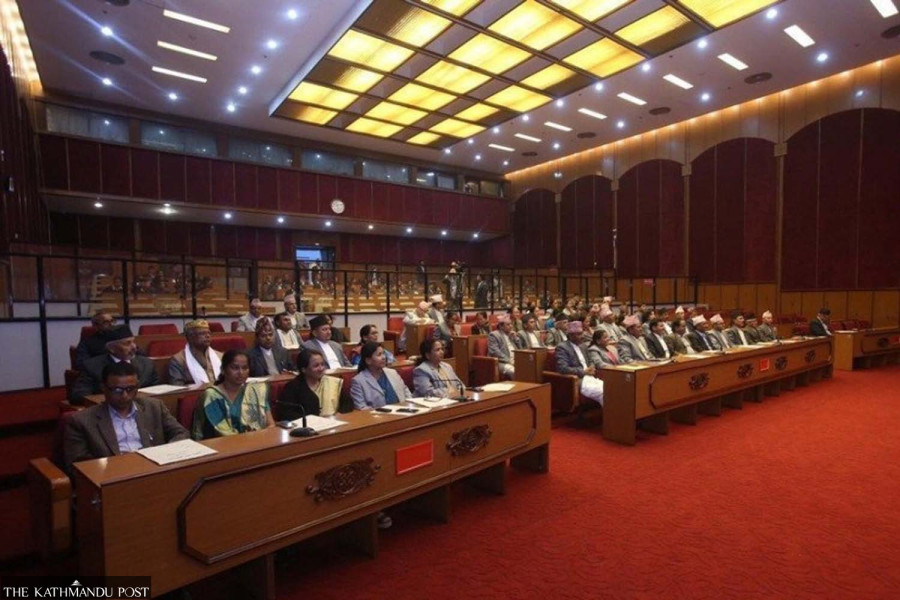National
National Assembly passes resolution to end caste discrimination
The 19-point motion aims to pressure the federal government to work effectively towards ending discrimination and oppression against Dalits.
Post Report
Tul Prasad Bishwokarma, a Rastriya Janamorcha leader, had to come to Kathmandu after he was elected as a member of the National Assembly in March last year. As he didn’t own a house in the Capital, he had to rent a flat.
The search proved to be an uphill battle for him. Finding a room to rent in Kathmandu is generally arduous and for a Dalit person like Bishwokarma, it often comes with extra trouble. It took him four months to find one.
Bishwokarma had rent deals broken in six places. “Initially, they [the landlords] would agree to rent their house but whenever I revealed my surname upon their inquiry, they would come up with various excuses to not allow me to stay,” Bishwokarma said while addressing the upper house on Wednesday. “If an elected representative faces discrimination openly, imagine the situation of Dalits in the country.”
Bishwokarma is now staying in a house owned by a Dalit.
Though Nepal’s law has criminalised caste-based discrimination, the practice continues in the country overtly or covertly, in both rural and urban settings.
On Wednesday, the National Assembly unanimously endorsed a resolution motion that aims to keep this phenomenon in check. The motion aims to pressure the government to work effectively towards ending discrimination and oppression against Dalits. The 19-point motion envisions directing the government to act strictly against all sorts of discrimination in public and private places and ensure proper legal actions against the culprits. It also wants the government to report to the upper house about the steps it has taken towards creating an equal and equitable environment to the Dalits.
The motion’s provisions also include free education for Dalit students up to university level and special reservation in the vocational and technical education; assurance of social security to people from the community; and incentives to promote inter-caste marriages.
“Direct all tiers of governments to allocate budget for the awareness campaign against the caste based discrimination,” reads one of the points in the motion. “Establish the provincial offices of the Dalit Commission in all seven provinces and allocate necessary budget and resources so that they can work effectively to stop discrimination and oppression against Dalits and conduct monitoring.”
Presenting the motion in the House, Bhuwan Bahadur Sunar of the CPN (Maoist Centre) said lax implementation of the laws that criminalise caste-based discrimination is one of the major reasons the practice persists in Nepali society.
In response, Prime Minister Pushpa Kamal Dahal accepted that the discrimination is prevalent in the society and Dalit victims often don’t get justice. Addressing the House, Dahal claimed that such practice will subside with an increase in the pace of development and implementation of the legal provisions. “I fully agree with the issues raised in the motion,” Dahal said. “A lot needs to be done to create a respectful environment to the people from Dalit community and others. I commit to address the issues raised in the resolution motion at the maximum level.”
The House also directed the government to take necessary measures to implement the motion. “The House directs the government to fully implement the motion,” Ganesh Timilsina, chairperson of the upper house, said. “It also directs the parliamentary committees under the National Assembly to monitor the status of its implementation.”




 18.12°C Kathmandu
18.12°C Kathmandu













